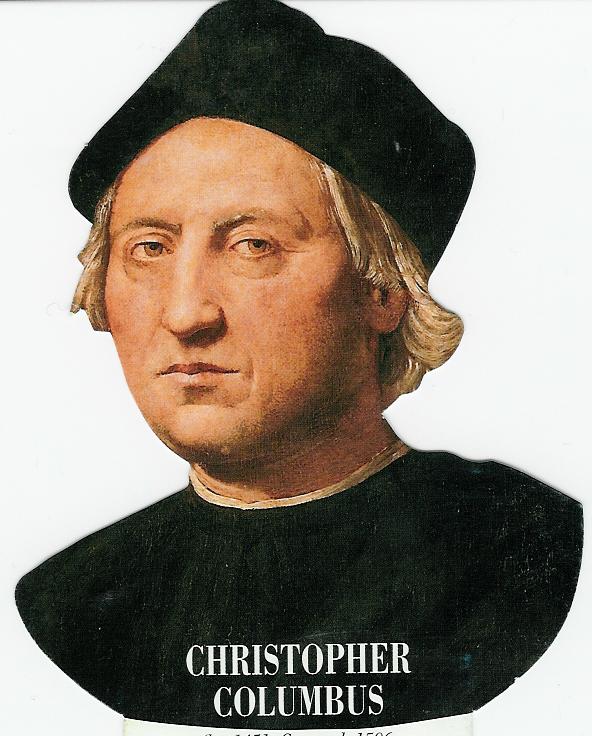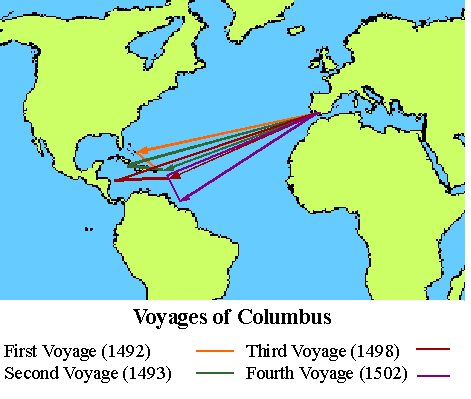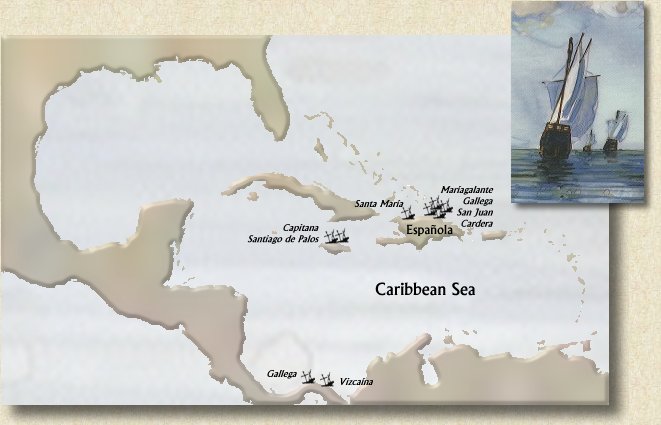Christopher Columbus
Christopher Columbus
b. 1451 Genoa d. 1506 Valladolid, Spain
The son of a Genoa wool weaver, young Columbus loved the sea and eventually settled in Portugal, a country that enjoyed ruling the sea. He went sailing in the service of a Genoese bank and in his spare time studied Viking sagas (long stories about their history) and Marco Polo's writings, he became convinced that the world was a small sphere and that Asia was not far to the west. In 1479, on a trip to Madeira to buy sugar, he married one of the daughters of Henry the Navigator's captain. She gave Columbus her father's charts, which fired up his drive to reach Asia by sailing west.


